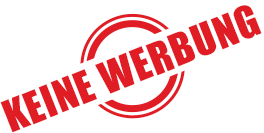CERN's Compact Muon Solenoid Group at the University of Virginia Orders Zecotek's Thin LFS Crystal Plates
24 September 2015 - 3:02PM

Zecotek Photonics Inc. (TSX-V:ZMS)
(Frankfurt:W1I)
, a developer of leading-edge
photonics technologies for industrial, healthcare and scientific
markets, today announced that CERN's associated scientific team,
working on the Compact Muon Solenoid (CMS) experiment at the
University of Virginia, has ordered Zecotek's thin LFS crystal
plates manufactured specifically for its shashlik designed
calorimeter. The LFS crystal plates supplied by Zecotek have a
nominal thickness of 1.5mm.
"We are pleased that Zecotek has been able to supply thin LFS
crystal plates for our shashlik design calorimeter," said Professor
Brad Cox, leader of the University of Virginia, CERN's Compact Muon
Solenoid experiment. "We have found their LFS crystals to have
the energy resolution and radiation hardness required for our CMS
experiments. By using thin LFS crystal plates, we plan to
reduce the technical and costs risks associated with measurement in
such experiments. The aim is to provide data for ongoing design
evaluations to service the very high energies."
"Our thin LFS plates continue to have the unmatched cost and
performance advantages that are being demanded by CERN's higher
energy experiments," said Dr. A.F. Zerrouk, Chairman, President,
and CEO of Zecotek Photonics Inc. "The present LFS crystal
order follows a series of orders for ongoing tests to identify an
optimum design solution for the main part of the CERN experiment.
We look forward to working closely with the CERN team at the
University of Virginia who are leading the LFS plates based design
configuration for the major CMS experiment."
The Large Hadron Collider (LHC) is a large experiment based in
Geneva, Switzerland with many participating laboratories from
around the world contributing and having a significant impact to
the overall experiment. The CMS group at the University of
Virginia has been very active with the search for new particles
produced by the LHC. Among other activities, the scientific
team at University of Virginia has participated in the preparation,
installation, commissioning and operation of the electromagnetic
detector of CMS experiment which is the most important subdetector
used in the search for the Higgs boson. The team also has
taken an active role on analysis review committee of the huge
amount of data produced.
The CMS Experiment is one of two large general-purpose particle
physics detectors built on the Large Hadron Collider at
CERN. It is composed of three main components: scintillation
material, photo-detectors and the ubiquitous electronic
system. Zecotek's LFS plates were originally tested for use in
CERN's high energy experiments because of their density of
material, stopping power, fast decay time, very good energy
resolution, unique radiation hardness, and competitive effective
price.
In March 2013, CERN scientists confirmed that a new subatomic
particle discovered at the world's most powerful particle
accelerator is the Higgs Boson. As CERN pushes into this new
frontier of science, additional experiments are required to
determine the particle's properties and its true
form. High-energy scintillation crystals with high radiation
hardness and solid-state photo detectors are paramount for the
success of the next stage of experiments. The super high
energy experiments are planned to be up and running within the next
3 to 4 years.
-30-
About the CMS Experiment at CERN
CMS is one of two general-purpose experiments at CERN's Large
Hadron Collider (LHC) that have been built to search for new
physics. CMS is designed to detect a wide range of particles and
phenomena produced in the LHC's high-energy proton-proton and
heavy-ion collisions. At CMS, scientists are looking into the
unknown and trying to answer the most fundamental questions about
our Universe, for example: "What is the Universe really made of and
what forces act within it?" and "What gives everything
substance?". CMS also measures the properties of well-known
particles with unprecedented precision and is on the lookout for
completely new, unpredicted phenomena. Such research not only
increases our understanding but may eventually spark new
technologies that could change the world we live in. The CMS
experiment is one of the largest international scientific
collaborations in history, involving 4300 particle physicists,
engineers, technicians, students and support staff from 179
universities and institutes in 41 countries. For more
information about CMS please visit http://cms.web.cern.ch.
About Zecotek
Zecotek Photonics Inc (TSX-V:ZMS) (Frankfurt:W1I) is a photonics
technology company developing high-performance scintillation
crystals, photo detectors, positron emission tomography scanning
technologies, 3D auto-stereoscopic displays, 3D metal printing, and
lasers for applications in medical, high-tech and industrial
sectors. Founded in 2004, Zecotek operates three divisions:
Imaging Systems, Optronics Systems and 3D Display Systems with labs
located in Canada, Korea, Russia, Singapore and U.S.A. The
management team is focused on building shareholder value by
commercializing over 50 patented and patent pending novel photonic
technologies directly and through strategic alliances and joint
ventures with leading industry partners including Hamamatsu
Photonics (Japan), the European Organization for Nuclear Research
(Switzerland), Beijing Opto-Electronics Technology Co. Ltd.
(China), NuCare Medical Systems (South Korea), the University of
Washington (United States), and National NanoFab Center (South
Korea). For more information visit www.zecotek.com, follow
@zecotek on Twitter and "like" us in Facebook at
www.facebook.com/zecotek.
This press release may contain forward-looking statements that
are based on management's expectations, estimates, projections and
assumptions. These statements are not guarantees of future
performance and involve certain risks and uncertainties, which are
difficult to predict. Therefore, actual future results and trends
may differ materially from what may have been stated.
Neither the TSX Venture Exchange nor its Regulation Service
Provider (as that term is defined in the policies of the TSX
Venture Exchange) accepts responsibility for the adequacy or
accuracy of the content of this news release. If you would like to
receive news from Zecotek in the future please visit the corporate
website at www.zecotek.com.
CONTACT: For Additional Information Please Contact:
Zecotek Photonics Inc.
Michael Minder
T: (604) 783-8291
ir@zecotek.com
Zecotek Photonics (TSXV:ZMS)
Historical Stock Chart
Von Dez 2024 bis Jan 2025

Zecotek Photonics (TSXV:ZMS)
Historical Stock Chart
Von Jan 2024 bis Jan 2025


